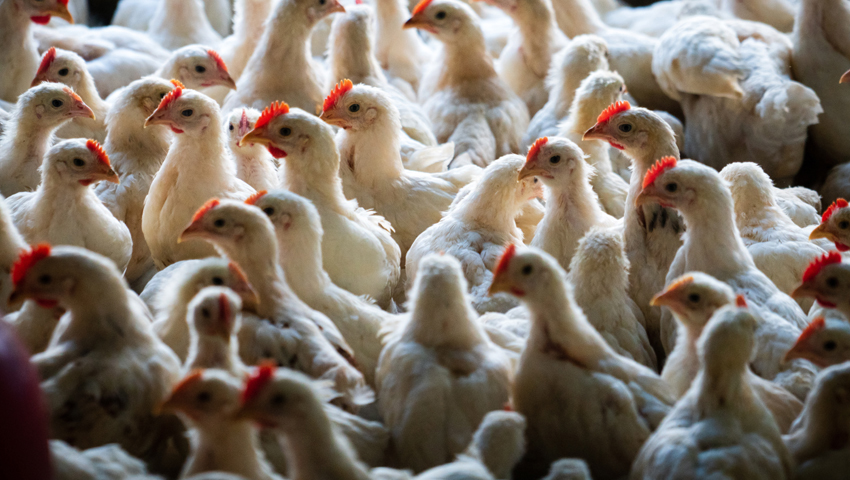A new plan to tackle antimicrobial resistance, a global issue that makes infections difficult or impossible to treat, has been launched by the UK Government.
The national action plan will commit the UK to reducing its use of antimicrobials – such as antibiotics, antifungals and antivirals – in humans and animals, strengthen surveillance of drug-resistant infections before they emerge and incentivise industry to develop the next generation of treatments.
It commits to continue to innovate through initiatives such as indicating that that the world-first ‘subscription model’ for antimicrobials, which was launched in 2019 as a pilot, could be expanded. This will see more companies paid a fixed annual fee for antimicrobials based primarily on their value to the NHS, as opposed to the volumes used.
The plan will build on progress towards the UK’s 20-year vision for antimicrobial resistance, which will see AMR contained, controlled and mitigated – protecting public health by increasing the risk of disease spread, severe illness, disability and death.
Health Minister Maria Caulfield said, “Almost 8,000 people in the UK die from drug-resistant infections every year. If this continues to spread, common infections and injuries that were once easily treatable become harder, and in some cases impossible, to treat.
“Our 5-year action plan outlines our commitment to leading the way in tackling AMR, including through expanding our world-first subscription model to accelerate research into new treatments.
“In a world recovering from the profound impact of the COVID-19 pandemic, international collaboration and preparedness for global health challenges have taken on an unprecedented level of importance.”
This is the second of a series of 5-year national action plans that will ensure sustained progress by tackling the global threat of AMR.
Learning from the achievements and challenges faced in delivering the previous plan, which was launched in 2019, this new national action plan will run from 2024 to 2029. It embeds lessons from the COVID-19 pandemic and will include specific commitments focusing on infection prevention and control, and the development and use of diagnostics and vaccines.
Action has already been taken across sectors, including the medical and farming industries, to decrease the number of infections and prevent AMR from spreading.
The new plan has 9 strategic outcomes organised under four themes:
- Reducing the need for, and unintentional exposure to, antimicrobials – this includes activity to prevent infections arising in the first place (through good infection prevention and control, including vaccination), to monitor the emergence and spread of AMR through strengthened surveillance, and to minimise release of antimicrobials and resistance into the environment
- Optimising the use of antimicrobials – through ensuring antimicrobials are only used when needed in humans, animals and the environment
- Investing in innovation, supply and access – by supporting and incentivising the development of new vaccines, diagnostics and therapeutics (including alternatives to antimicrobials), making them accessible to those who need them, and ensuring our work on AMR is informed by cutting edge research
- Being a good global partner – maintaining the UK’s role as an international leader on AMR and supporting low and middle income countries to respond to the threat of AMR through research, good supply chains and access to antibiotics
AMR occurs when bacteria, and other microorganisms, develop resistance to antimicrobial drugs, such as antibiotics, making them less responsive or unresponsive to treatment. Avoiding unnecessary antibiotic usage in humans and animals is crucial to slowing the development and spread of antibiotic resistance.
In 2022, the government invested £210 million to partner with countries across Asia and Africa to tackle AMR and reduce the threat posed to the UK, through the Fleming Fund.
It is estimated that in 2019, 1.27 million deaths globally were caused by infections resistant to antibiotics. The UK is committed to playing a central role in the global effort to confront AMR by taking a comprehensive approach that leverages the country’s expertise and domestic experience.
The scale of the AMR threat, and the need to contain and control it, is widely acknowledged by governments, international agencies including the World Health Organisation and World Bank, researchers and private companies alike.
Chief Medical Officer Professor, Chris Whitty, said, “Antibiotics are one of the most powerful tools we have against infection. Resistance to these drugs therefore poses a significant threat to the lives of many people in the UK and around the world. AMR is not just a matter for clinicians – it is important to work across sectors to help preserve these vital medicines to minimise the impact of AMR.”
UK Chief Veterinary Officer, Christine Middlemiss, said, “The UK has made fantastic progress in the past 10 years to reduce AMR in animals, working between government, farming industry, vets and animal keepers to reduce the use of antibiotics in food-producing animals by more than half. The new national action plan will build upon these achievements, and I urge vets and animal keepers to continue to support the UK’s 20-year vision to contain and control AMR.”
See the UK 5-year action plan for antimicrobial resistance 2024 to 2029
